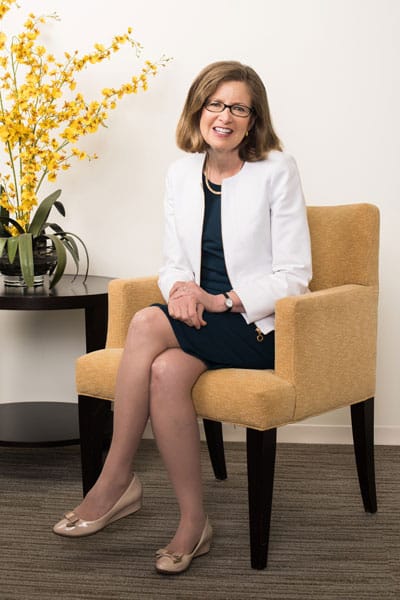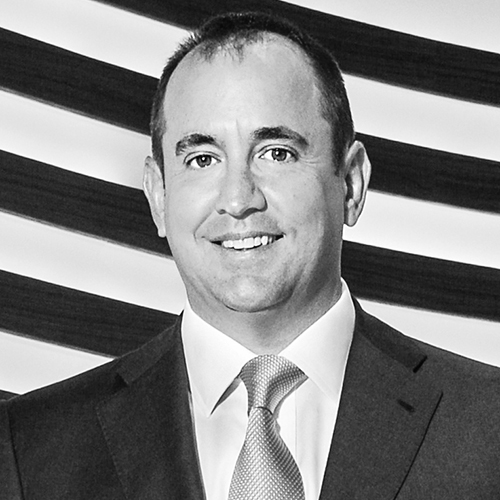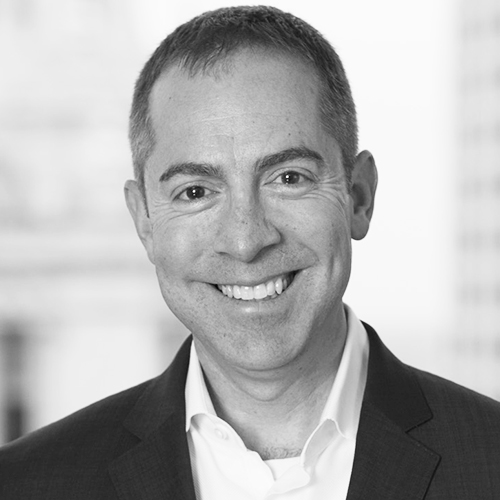When you’re young, you want to help. But when you’re young, what it means to help can be difficult to articulate. Cindy Lewin wanted to help—to make meaningful, concrete change. And, after a few years working on Capitol Hill, she saw her chance in policy and legislation. That led her to Yale Law School. As she studied, however, Lewin kept an eye on Washington. What she saw was discouraging.

“I watched to see what had been happening with all the issues I had been working on, issues that were so incredibly important to me,” she says. “I saw that nothing had happened to them. People were having all the same discussions and arguments we’d been having the year before. Nothing really changed.” Advocacy, it turns out, is a slow, agonizing process. But Lewin strapped in, and over the next twenty-five years, she forged a career that encompasses organizations that effect change both in Washington and on the front lines.
“When you look back at your career path, you can see how it makes sense. But when you’re at the beginning of it, you don’t know where you’re going,” says Lewin, reflecting on the arc that led her from law school to private practice and, eventually, to serving as the general counsel of three large, national nonprofits.
Today, she serves as the executive vice president and general counsel of AARP, the juggernaut nonprofit that, for half a century, has worked to enhance the quality of life for people as they grow older. “It’s just such a universal mission. I love that about it,” Lewin says, emphasizing the company’s efforts toward destigmatizing the aging process. “We want to help people face this part of their lives, to recognize that it doesn’t have to be a decline and that it can be a fulfilling time.”
Lewin views her position at AARP as a culmination of her prior experiences, specifically her roles at Volunteers of America and the National Wildlife Federation. At AARP, she’s able to combine the outreach and human services of the former with the advocacy and education of the latter.
Lewin’s Board Memberships
National Human Services Assembly:
- Brings together roughly eighty national human services nonprofits.
- AARP is a member.
- Aims to share best practices and give a voice to the human services sector as a whole.
- “We want to have a collective vision for the human services sector,” Lewin says. “So we learn from each other and work together for people. That’s the joy of being on that board.”
Friends of the National Zoo:
- Involved in a multitude of the Smithsonian National Zoo’s operations.
- Provides volunteers, education, concessions, events, and guest services at the zoo, right down to trash collection.
- “It ties back to my conservation work with the National Wildlife Federation,” Lewin says. “And it’s great to think about how we can make coming to the zoo fun, but also help people understand that zoos are really saving species.”
“It’s America’s best-kept secret,” Lewin says of Volunteers of America. “It’s the kind of charity that’s doing good work in every community, and you don’t necessarily know it.” She was struck by what she described as the organization’s “ministry of service,” which encompasses everything from providing assisted living and affordable housing to sponsoring Meals on Wheels programs and adoption services. As one of the organization’s first general counsel, Lewin essentially built the legal department from scratch.
Eight years later, Volunteers of America found itself deeply involved with the evacuation and relocation of the survivors of Hurricane Katrina. Lewin even helped man the company’s dedicated 1-800 number, and it was this experience that inspired her move to the National Wildlife Federation. “I felt that storm was really exacerbated by climate change, and that we were going to see storm after storm like that,” she says. “At the time, the National Wildlife Federation had a CEO that made climate change the main priority. That’s what he saw as the biggest threat to the environment. It was a very energized, passionate atmosphere. We felt that we needed to save the world.”
Both there and at Volunteers of
America, Lewin saw her role as a path maker. As general counsel, she cleared obstacles and absorbed the kinds of distractions and worries that could otherwise hinder those on the front lines. “You have their back legally,” she says. That attitude carries over to her work with AARP, though most gratifying for Lewin is her role on the executive team. There, she’s intimately involved in the mission of the organization, whether in regard to advocacy, innovation, or specific programs.
One such program is AARP’s work with Experience Corps, which allows older people to act as tutors to students from challenged schools. “I’ve been thrilled,” she says of the program, which she worked hard to bring into the AARP family. “We’ve grown the program and the impact, not only on the kids and how much better they read, but also on the senior tutors who are engaged and getting out of the house and even into other volunteer activities and paid work.”
And that’s really the goal. With time-tested initiatives and new ones born from its ever-growing Disrupt Aging movement, AARP is providing options to older
Americans as it builds peer communities and creates opportunities for technological engagement. “We’re empowering people to choose how they live as they age,” she says.
Now is the time for advocacy, with a new administration in Washington, Lewin says. “A lot of AARP’s critical issues are going to be in play,” she says. “But we are prepared.”
As we get older, it’s not the question of how we can help that’s difficult to articulate; rather, it’s the question of what change looks like. “I don’t know exactly how you change the world,” Lewin says. “But I believe that nonprofits have a critical role to play.” Thanks to committed people like Lewin, the movement for change marches on.

